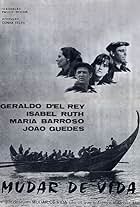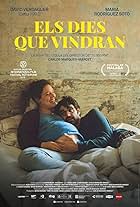What is the purpose of a film?
In his 1997 film "Train of Shadows" José Luis Guerin (Barcelona 1960) seemed to wonder the purpose of a celluloid roll? (Let me specify, several rolls some of them in 16mm) and built his response about the existence of a domestic, spectral filmmaker. In 2007 in the film "Dans le ville du Silvie" the question seemed to be: What is the purpose of a memory? And his answer came through the sketches of a painter in his sketchbook. In "Guest" of 2010 and in tone of "document" the answer to the question posed in the film is visceral, almost reactive and is recorded in the same voice of the author: "The painting, the painting is more important than cinema". These examples present a constant in Guerin's filmography (Recurring in "Bertha's motives" and his filming within the film, "Innesfree" and the fictional town evoked by John Ford in "The Quiet man" "Under construction" which is literally a course of higher studies in cinematography, "Some photos in the city Silvia" which is a feature film and at the same time the sketch of another feature film)
Guerin perhaps the most cinephile of all contemporary filmmakers is also the one who seems to question the strength of the aesthetic proposal of cinema as an autonomous entity. His films usually present questions such as: What is the use of filming? What is the value of the celluloid? Who have been the big stars in the places where they are supposed to leave their mark? Why produce a film with a specialized technical and artistic staff if an individual with a camera made to record baptisms, weddings and birthdays can tell the same story? To say what they have said before and better: Rembrandt, Degas and even Hopper do you need to hire a small army of costume designers, makeup artists and decorators? Can an actor, or actress, better express the trace of passions, vicissitudes, pleasures and joys on the human face than Velasquez, Rafael or Leonardo? Will any Director of photography dare to suggest that he and his camera crew have managed to capture the diaphanous and dark journey of light better than: Caravaggio, Turner, or that the Flemish and Impressionist School?
To call into question the very value of cinema as art that Guerin's Filmography has done and that he does again! Taking over from Dante f all authors! in "The Academy of the Muses" (feature film as peculiar and modest as it is deep) On this occasion the answers that result turn out to be an outburst of confluent doubts at the gates of the Averno (!literally!) It is necessary to recognize that if the value of this film resided only in the above mentioned, its interest could be limited to hard moviegoers, Guerin s followers, aspiring filmmakers and the rest of Guerin's colleagues, the general public would be better served by ignoring the film that would become an aesthetic device more typical of a visual arts biennial or an academic symposium. However "The Academy of the Muses" and in this resides perhaps its redemption; It also shows in a subtle way (without any intention of pontificating) that our actions have consequences on those we say we love and it does so in such a reliable way that in the end, after seeing it, catharsis becomes.
















